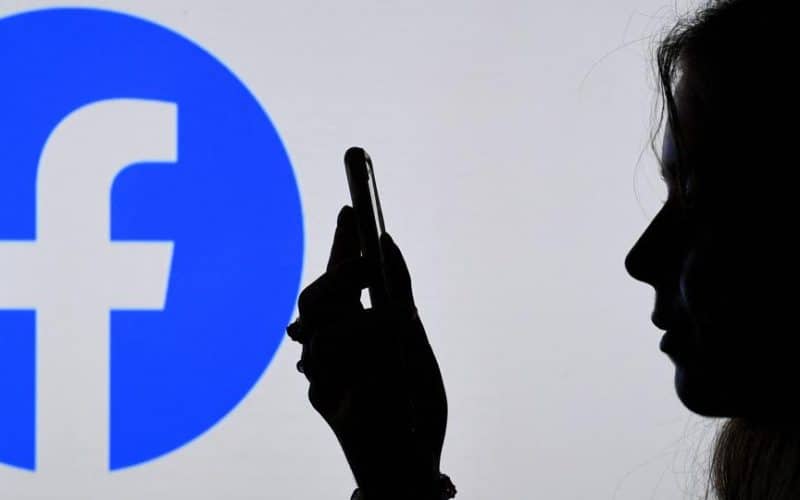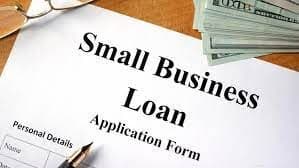Facebook Marketplace is a great platform for users to sell their goods without having to pay exorbitant fees, as is the case on other platforms. It is also the perfect spot for thrifty shoppers looking to purchase secondhand products at reasonable prices. However, the market has evolved into a breeding ground for con artists. In this article, we will reveal how scammers use the Cash App to steal the hard-earned money of sellers. Additionally, we will examine some methods for avoiding Facebook Cash App scams.
Cash App Scams on Facebook Market
Cash App is a popular payment processor that allows you to receive and send money instantly to and from family and friends. In time, it has also become a viable payment option for business transactions. However, many fraudsters now use it to defraud sellers and anyone else online. Scammers on Cash App typically target sellers of expensive items, but this does not exclude sellers of inexpensive items.
How Does Facebook Cash App Scams Work?
A Facebook Marketplace buyer will request to purchase an item from you if you are a seller. The customer will then request to pay for the item using the Cash App.
Some buyers will offer more than the item’s listed price to make it difficult for the seller to refuse the deal. Occasionally, they will also offer to cover the shipping and insurance costs if the item needs to be insured. At this point, the deal is simply unavoidable, so you accept.
In order to appear as a legitimate buyer, the con artist will request that you send them photographs of the item you’re attempting to sell. After that, they will request your email address so that they can verify your payment. Alternately, they may employ a different tactic to obtain the email address you used to create your Cash App account.
Read Also: Cash App Scams: Everything You Should Know!!!
After receiving your email address, they will inform you that the payment was successful on their end, and you should shortly receive a payment confirmation email. This should already be a red flag, as the Cash App always sends push notifications whenever a payment is received. You do not need to check your email to confirm a successful payment.
Later, you will receive an email notification stating that you have been paid. However, there’s a catch. The email was not sent by the Cash App system, but by a fraudster. You will not receive a payment notification from the Cash App, unlike other transactions.
Fortunately, identifying a fraudulent email is fairly simple. Here are some tips for determining whether an email is fake or spam:
- Numerous grammatical errors
- The capitalization of particular words
- They are personal emails sent through a mail client such as Gmail, Yahoo, or Outlook. An official name should conclude with the company’s domain name.
- It does not contain your name or any other identifying information.
- The email’s layout is too basic and eccentric.
- They attempt to hasten your decision-making.
If you are not cautious, you will mistakenly believe that you have been paid for your product and will rush to ship it to the con artist. As a result, you will lose both the merchandise and the anticipated payment. After that, the con artist will likely block you on email and social media and cease all communication with you.
Cash App Scams: How to Recognize and Avoid Facebook Marketplace Scammers
Scammers are abundant on the Facebook Marketplace, but they are surprisingly easy to identify and avoid. Here are some common indicators that a buyer may be a scammer:
On their Facebook page, they are using a fake profile
Given how simple it is to create a Facebook account, it is not uncommon for con artists to possess multiple fake accounts. Fortunately, identifying a fake Facebook account is a breeze. The profile picture and cover photo are typically stock images. The accounts are also newly created and have no or very few friends. While these indicators do not necessarily indicate a fraudulent account, they can be helpful in determining whether you are conversing with a scammer.
They offer to pay more than the product is worth.
The majority of buyers will attempt to negotiate a lower price. Therefore, you should be suspicious if a buyer offers to pay more than the item is worth.
They refuse to meet in person
It is always recommended that, if at all possible, you meet the potential buyer in a well-lit, public place (preferably near a police station) so that you can safely exchange goods and payments. However, con artists will attempt to circumvent this procedure out of fear of being caught. They will make every effort to avoid meeting you in person. Occasionally, a buyer may have legitimate reasons for not wishing to meet. Consequently, evaluate the situation appropriately.
They request payment methods that are not currently supported by Facebook Marketplace.
Facebook Marketplace attempts to regulate trading on the platform by protecting both buyers and sellers. Typically, scammers will request payment via a method for which Facebook does not offer protection, such as Cash App and Zelle.
They will request your email address
This is possibly the riskiest option on the list, as it is the final execution point for the majority of Cash App scammers. They will attempt to invent an excuse to access your email. This is the email address they will use to send you a fraudulent payment notification. As a result, it is always advisable to keep your personal information such as emails, passwords, credit card information, and home address hidden from scammers.
What Should You Do After Being Scammed?
So, you’ve discovered you’ve been defrauded. What then? Well, there are a few options after you’ve been scammed. Here are some examples:
- Report the criminal activity immediately to the local law enforcement agency. In most countries, online scamming is a criminal offence, and perpetrators should be reported to the police.
- If you’ve been scammed, report the scammer’s Facebook account to Facebook so that they can take appropriate action. The Facebook team will request proof that the buyer attempted to defraud you. If they deem it sufficient, they will prevent the user from accessing Facebook in the future.
Is Cash App Facebook Marketplace-Safe?
Well, it depends. Cash App is an option for sending and receiving money that is secure. It is also ideal for business transactions because the buyer cannot cancel payment after receiving the product.
As a seller, you may wish to exercise caution when dealing with buyers who pay you via the app. Ensure, for instance, that transactions are accurately reflected in your Cash App prior to shipping the product. Do not rely on phishing emails sent by con artists; to be on the safe side, do not share the email address associated with your Cash App account with anyone.
Although Cash App is somewhat secure, it is recommended that you use Facebook Marketplace-supported payment methods such as PayPal and Facebook Cashout. Using these methods protects both the buyer and the seller in the event that one party decides to back out of the transaction.
How to Prevent and Avoid Cash App Scams
Do not reveal confidential information.
Protect your Cash App login information and other sensitive data. Employees of Cash App will never ask for your PIN, password, authentication codes, or sensitive information including your SSN and bank account details.
Employ two-factor authentication on your account.
2FA is an additional security measure that requires both a password and a unique code. Enable two-factor authentication on your Cash App account, but use an authenticator app (rather than SMS) to receive the code.
Configure “security lock” and payment alerts.
The “Security Lock” feature of Cash App requires you to enter your passcode for every transaction. You can also configure payment notifications via text message or email to be notified whenever a payment is made.
Secure your mobile devices against scammers.
Use unique, secure passcodes and biometric security (such as fingerprint ID) on all your mobile devices. For instance, you should not use the same password for your smartphone, computer, and iPad.
When you are finished using Cash App, you must log out.
Do not keep your account logged in, as this gives anyone who uses your device easy access to your account.
Only trust emails from Cash App’s official domains. Emails from Cash App will originate from either @squareup.com, @square.com, or @cash.app.
Be wary of email and message links and attachments.
This is one of the most common ways that hackers install malware on your device. Update your device’s operating system and applications, and install antivirus software on all of your devices, for optimal security.
Do not maintain large amounts of cash in your account
The balance in your Cash App is not federally insured. Keep only small amounts of cash in your account at all times, and avoid sending money to strangers. Verify account information before initiating a transfer with anyone who is not a close friend or family member.
Only contact customer service through the app
Do not dial phone numbers discovered through Google searches. If someone claiming to be from Cash App contacts you, hang up (or delete the message) and contact the company through the app.
If a deal seems “too good to be true,” it is likely a scam
Follow the golden rule of fraud prevention at all times.
How to Get Your Cash Back from Cash App If You Were Scammed
If you’ve been scammed on Cash App or sent money to the wrong person, here’s how to attempt to recover your funds:
Make a refund request to the recipient.
If you accidentally sent money to the wrong person or wish to request a refund, open Cash App and navigate to the “Activity” tab. Then, locate the payment and choose “…” in the upper-right corner. Select “Refund” followed by “OK.” This sends a refund request, but the recipient must accept it before a refund can be issued.
Attempt to cancel payment.
If you recognize the fraud quickly enough, you can attempt to cancel the wire transfer. Again, navigate to the “Activity” tab to locate the payment. Whenever you see the option “Cancel,” select it.
Dispute to the transaction
If you are still unable to receive a refund, you should dispute the transaction. Navigate to the “Activity” tab, locate the payment, and click “…” Then click “Need Help & Cash Support.” Afterwards, select “Dispute this transaction.” The Cash App team will then conduct an investigation and notify you of their decision.
Report the transaction as fraudulent.
You can also report a potential scam payment by tapping your profile icon and selecting “Support” followed by “Report a Payment Issue.” Select the fraudulent payment and follow the on-screen instructions.
Report and Block the Cash App Scammer
Lastly, you can block the scammer’s account by visiting their profile, scrolling to the bottom, and tapping “Report” or “Block.”
Make a formal complaint to the FTC. Call 1-877-FTC-HELP or visit ReportFraud.ftc.gov to report the scam to the appropriate government authorities.
Which Cash App transactions can be contested?
You may contest a Cash App transaction if:
- You received an unexpected result, such as duplicate transactions or being charged an incorrect amount.
- When your Cash App Card is stolen or lost, fraudulent transactions occur. You can also dispute fraudulent transactions if your account has been compromised or if you were not involved in the transaction.
Will Cash App Refund funds lost in a Scam?
Cash App will cancel a potentially fraudulent transaction to protect your account from fees. Your funds are returned instantly to your linked bank account or Cash App balance, where they should be accessible within one to three business days.
However, there are no refund guarantees if you’ve been defrauded. Due to the fact that Cash App is a peer-to-peer transfer platform, your best option for a refund is to contact the recipient or cancel the transaction before it is finalized.
In the meantime, if you have linked your Cash App account to a debit card or credit card, you can dispute the transaction with your bank.
How can you tell if someone is attempting to defraud you via Cash App?
- They contact you via social media claiming to be Cash App customer service representatives.
- They request your PIN or other confidential information.
- They request your personal information and payment for a service.
Legitimate cash app representatives will never request your personal information via social media, telephone, or other channels.
Can Your Cash App Account Be Hacked Using Your Name or Cash App Tag?
No. Cash App hackers require more than your name or “$Cashtag” to gain access to your account.
Additionally, they will require your Cash App PIN, phone number, and email address. However, cybercriminals can access your Cash App account by compromising your email address through phishing attacks.
Cash App Scams On Facebook: Related Articles
- How can you safeguard your digital yuan investment?
- Cash App Scams: Everything You Should Know!!!
- FACEBOOK MARKETPLACE: Items to Sell, Scam & How to Sell
- How Paying With Bitcoin Is Beneficial?
- WHAT IS A CERTIFIED BANK CHECK: How to Get One






